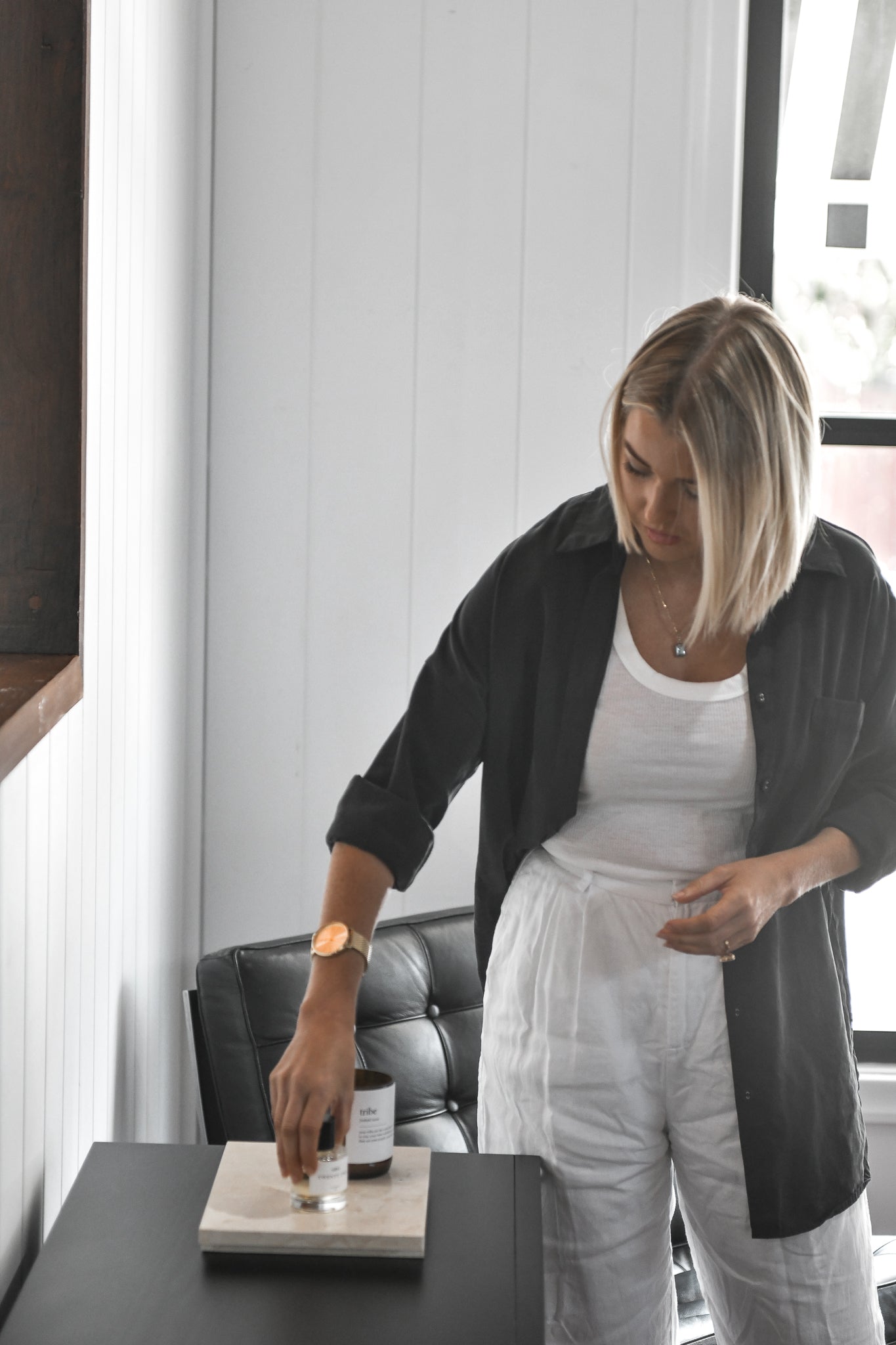Seems pretty simple? Light her up and off you go! Uh uh. There are a couple of important things you want to remember to get the most out of your pillar candle.
Firstly, all candles “remember” how they burned previously, and tend to follow the same pattern during subsequent burns. If the wax around the edges never melted, the wick will sink into a crater of hardened wax in a process called tunnelling. This means that the first burn of your candle is SO important.
Here's some easy to follow steps for the first burn of your pillar candle, and some tips to make sure you get the most out of the life of your candle.
Position a candle vertically on a flat, stable surface. If you place a candle on an uneven surface, the wax will melt in irregular patterns and the flickering flames might give off dark smoke stains. It is important to note pillar candles will drip excessively if they're not totally upright. Most importantly, it's highly unsafe to place a candle on an unstable or angled surface, and said surface should also be fire resistant.
Melt the entire top layer of wax during the first burn. Allow the pillar candle to burn until the top surface of wax has completely melted. Monitor the progress and snuff out the flame once you notice the wax pool stops widening and start to sink. This is an important step to combat the 'tunnelling' I mentioned earlier. If you do not allow the candle to burn long enough in the beginning, you will waste a lot of candle. The first burn may take several hours, a rule of thumb is that it takes about 1 hour per 2cm of the candle's diameter. For example, our norse rune candles diameter is 7cm, so you can expect to burn it for around 3 hours the first time.
Avoid memory rings by allowing the top layer of wax to melt during each burn. As previously mentioned, candles "remember" how much wax melted during previous burns. If you are only burning the candle for short periods of time, the pool of melted wax will continue to get narrower and narrower and will create a tunnel. To prevent this, follow the same process as you did during the initial burn. Monitor the candle during every burn session and allow the entire top layer of wax to melt.
Keep burning candles away from wind. Flickering flames might look pretty, but they don't burn candles evenly. Place your candle in a breeze-free location, away from fans, air conditioning units, open windows, and any other source of moving air. Not only will the candle not burn evenly, but this is also a safety precaution.
Snuff out a candle's flame instead of blowing it out. Blowing out a candle actually spreads ashy debris into the melted wax. When you're ready to extinguish the flame, hold a candle snuffer directly over the flame and lower it until it's just above the melted pool of wax. Hold it there for 2 or 3 seconds. Once the flame has used up the remaining oxygen under the snuffer, it will go out. If you don't have a candle snuffer, a large metal spoon will do the trick.
Fold in the top edges of a pillar candle while the wax is still soft. Once the flame is extinguished, use your hands to smooth over the top edges of the pillar. Fold them in towards the center so that the hard edges become soft curves leaning inward. During the next burn, these edges will melt away and there won't be any excess wax to create a tunneling effect.


